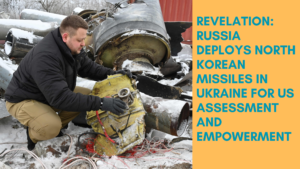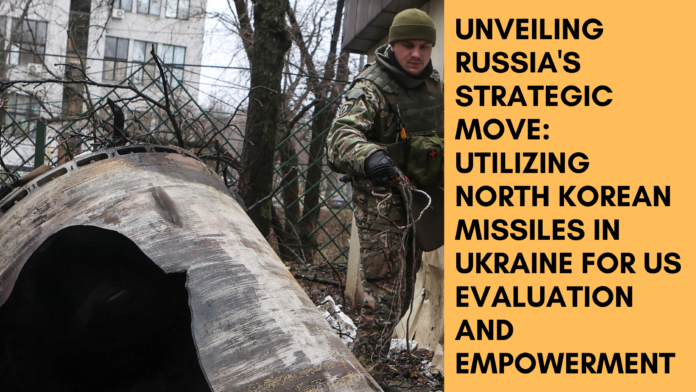Decoding Russia’s Deployment of North Korean Missiles in Ukraine
Russia’s Deployment of North Korean Missiles in Ukraine Offers Insight into Their Battlefield Effectiveness.

In a recent development, military analysts believe that Russia’s utilization of North Korean missiles in Ukraine serves as a unique opportunity to evaluate their efficacy in actual combat situations. South Korea’s ambassador to the UN, Joonkook Hwang, accused North Korea of treating Ukraine as a “test site” for its nuclear-capable missiles. According to Hwang, Russia deployed these missiles in attacks on December 30, January 2, and January 4.
National Security Council spokesman John Kirby confirmed Russia’s acquisition of “several dozen” ballistic missiles from North Korea and their use in separate attacks on December 30 and January 2. Ramon Pacheco Pardo from the Center for Strategic and International Studies (CSIS) emphasized the significance of gaining valuable information on these missiles during real-world battles. Pardo noted that this insight could be crucial in scenarios where North Korea might deploy these missiles in the Korean peninsula.

While North Korea has extensively tested various ballistic and cruise missiles since 2017, launching 68 missiles in 2022 alone, the U.S., South Korea, and Japan have not witnessed their deployment in a conflict until now. With Russia using these missiles in Ukraine, military experts can assess their accuracy, range, hit rate, launch failure rate, and Ukraine’s ability to intercept them.
Pardo highlighted the potential for comparing the effectiveness of shooting down North Korean missiles versus Russian ones. If Ukraine proves more successful in countering North Korean missiles, it could indicate that North Korean technology is not as advanced. David Albright, president of the Institute for Science and International Security, emphasized that studying missile wreckage could reveal critical information about components and designs.
The identification and assessment of parts and raw materials could significantly contribute to improving Western-made air defense systems, such as the U.S.’s Patriot, to better counter North Korea’s missile threat. Fabian Hinz, a research fellow at the International Institute for Strategic Studies, suggested that Ukraine’s analysis of missile debris could enhance the understanding of these missiles’ origin and quality.
Ukraine’s prosecutor-general, Andriy Kostin, confirmed that a preliminary examination of missile debris from an attack in central Kharkiv on January 2 indicated its development in North Korea. The U.S. and 50 allies issued a joint statement condemning the use of North Korea’s ballistic missiles by Russia in Ukraine, emphasizing the valuable technical and military insights gained from this deployment.
